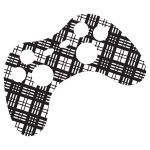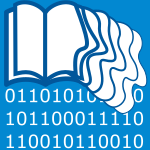Tag #gender
124 papers:
 EDM-2019-ChopraKMG #difference #learning
EDM-2019-ChopraKMG #difference #learning- Gender Differences in Work-Integrated Learning Assessments (SC, AK, MM, LG).
 CHI-PLAY-2019-KaufmanFF #game studies #women
CHI-PLAY-2019-KaufmanFF #game studies #women- Not Just for Girls: Encouraging Cross-Gender Role Play and Reducing Gender Stereotypes with a Strategy Game (GK, MF, GF), pp. 481–493.
 DiGRA-2019-Snowdon #game studies
DiGRA-2019-Snowdon #game studies- Dancing with the Hands: Frictions with Videogames, Dance and Gender (TS).
 DiGRA-2019-Tomlinson
DiGRA-2019-Tomlinson - Building a Gamer: Player Preferences and Motivations Across Gender and Genre (CT).
 ICGJ-2019-FerrazG #case study #game studies
ICGJ-2019-FerrazG #case study #game studies- A Case Study About Gender Issues in a Game Jam (CF, KG), p. 8.
 CIKM-2019-WuWQLH0 #microblog #predict #representation
CIKM-2019-WuWQLH0 #microblog #predict #representation- Neural Gender Prediction in Microblogging with Emotion-aware User Representation (CW, FW, TQ, JL, YH, XX0), pp. 2401–2404.
- ICSE-2019-ImtiazMCRBM #bias #git
- Investigating the effects of gender bias on GitHub (NI, JM, JC, NR, GB, ERMH), pp. 700–711.
- ICSE-2019-LeeC #overview
- FLOSS participants' perceptions about gender and inclusiveness: a survey (AL, JCC), pp. 677–687.
 EDM-2018-ChopraGKMG #approach #difference #mining
EDM-2018-ChopraGKMG #approach #difference #mining- Gender Differences in Undergraduate Engineering Applicants: A Text Mining Approach (SC, HG, AK, MM, LG).
 DiGRA-2018-Caetano #rust
DiGRA-2018-Caetano #rust- Avatars, Gender and Sexuality for Brazilian Players on Rust (MC).
 ICPR-2018-AzzopardiFGSV #image #recognition #using
ICPR-2018-AzzopardiFGSV #image #recognition #using- Gender recognition from face images using trainable shape and color features (GA, PF, AG, AS, MV), pp. 1983–1988.
 ICPR-2018-DiSP #named
ICPR-2018-DiSP #named- GP-GAN: Gender Preserving GAN for Synthesizing Faces from Landmarks (XD, VAS, VMP), pp. 1079–1084.
 ICPR-2018-NavyaSSRGPL #identification #multi
ICPR-2018-NavyaSSRGPL #identification #multi- Multi-Gradient Directional Features for Gender Identification (BJN, GCS, PS, SR, DSG, UP0, TL), pp. 3657–3662.
 FDG-2017-AndersonWKL #community #representation
FDG-2017-AndersonWKL #community #representation- The gender and race of pixels: an exploration of intersectional identity representation and construction within minecraft and its community (EA, JTW, YBK, DL), p. 10.
 FDG-2017-ScanlonSDJ
FDG-2017-ScanlonSDJ - The first door: gender, authority and choice in The Stanley Parable (MS, TS, PD, JJ), p. 4.
 EDM-2016-FengRMB #difference
EDM-2016-FengRMB #difference- Investigating Gender Difference on Homework in Middle School Mathematics (MF, JR, CM, RB), pp. 364–369.
 MSR-2016-0008S #stack overflow
MSR-2016-0008S #stack overflow- Recognizing gender of stack overflow users (BL0, AS), pp. 425–429.
 ICPR-2016-Gonzalez-SosaDV #estimation
ICPR-2016-Gonzalez-SosaDV #estimation- Image-based gender estimation from body and face across distances (EGS, AD, RVR, JLD, FB, JF), pp. 3061–3066.
 ICPR-2016-ZhuWLZ #learning #lightweight #network #recognition
ICPR-2016-ZhuWLZ #learning #lightweight #network #recognition- Learning a lightweight deep convolutional network for joint age and gender recognition (LZ, KW, LL, LZ0), pp. 3282–3287.
 HT-2015-Graells-Garrido #bias #wiki #women
HT-2015-Graells-Garrido #bias #wiki #women- First Women, Second Sex: Gender Bias in Wikipedia (EGG, ML, FM), pp. 165–174.
 ITiCSE-2015-FalknerSMST
ITiCSE-2015-FalknerSMST - Gender Gap in Academia: Perceptions of Female Computer Science Academics (KEF, CS, DM, AS, ST), pp. 111–116.
 ITiCSE-2015-GrandeP #motivation #programming
ITiCSE-2015-GrandeP #motivation #programming- Motivation and Grade Gap Related to Gender in a Programming Course (VG, JP), p. 349.
 ITiCSE-2015-WangHRI #difference
ITiCSE-2015-WangHRI #difference- Gender Differences in Factors Influencing Pursuit of Computer Science and Related Fields (JW, HH, JR, MI), pp. 117–122.
 CHI-PLAY-2015-AlSulaimanH #game studies #programming
CHI-PLAY-2015-AlSulaimanH #game studies #programming- Peter the Fashionista?: Computer Programming Games and Gender Oriented Cultural Forms (SA, MSH), pp. 185–195.
 DiGRA-2015-Friman #concept #game studies #research
DiGRA-2015-Friman #concept #game studies #research- The Concept and Research of Gendered Game Culture (UF).
 CHI-2015-KayMM #image #representation
CHI-2015-KayMM #image #representation- Unequal Representation and Gender Stereotypes in Image Search Results for Occupations (MK, CM, SAM), pp. 3819–3828.
 CHI-2015-MenkingE #online #wiki
CHI-2015-MenkingE #online #wiki- The Heart Work of Wikipedia: Gendered, Emotional Labor in the World’s Largest Online Encyclopedia (AM, IE), pp. 207–210.
 CHI-2015-MudliarR #online
CHI-2015-MudliarR #online- Offline Strangers, Online Friends: Bridging Classroom Gender Segregation with WhatsApp (PM, NR), pp. 3799–3808.
 CHI-2015-VasilescuPRBSDF #git
CHI-2015-VasilescuPRBSDF #git- Gender and Tenure Diversity in GitHub Teams (BV, DP, BR, MvdB, AS, PTD, VF), pp. 3789–3798.
 CSCW-2015-FreemanBBH #game studies #online #simulation
CSCW-2015-FreemanBBH #game studies #online #simulation- Simulating Marriage: Gender Roles and Emerging Intimacy in an Online Game (GF, JB, SB, SCH), pp. 1191–1200.
 CSCW-2015-HaimsonBDH #facebook
CSCW-2015-HaimsonBDH #facebook- Disclosure, Stress, and Support During Gender Transition on Facebook (OLH, JRB, LD, GRH), pp. 1176–1190.
 DUXU-UI-2015-HeidtKBR #difference #human-computer
DUXU-UI-2015-HeidtKBR #difference #human-computer- Incommensurable Writings — Examining the Status of Gender Difference Within HCI Coding Practices (MH, KK, AB, PR), pp. 196–205.
 DUXU-UI-2015-HwangLJ #difference #smarttech #user interface #verification #women
DUXU-UI-2015-HwangLJ #difference #smarttech #user interface #verification #women- Verification of Stereotype on Women Observing Gender Difference on UX of Wearable Device (HJH, JML, DYJ), pp. 214–223.
 DUXU-UI-2015-LimW #challenge
DUXU-UI-2015-LimW #challenge- Closing the Gender Divide in Tech: Challenges and Achievements in Vogue (LL, Y(W), pp. 224–231.
 DUXU-UI-2015-Nawrot #data analysis #difference #question #towards #women
DUXU-UI-2015-Nawrot #data analysis #difference #question #towards #women- Gender Differences in Temporal Data Analysis — Toward Women or Men Empowerment? (IN), pp. 232–242.
 HCI-IT-2015-RughinisT #game studies #quote #sketching
HCI-IT-2015-RughinisT #game studies #quote #sketching- “Sketchy Wives” and “Funny Heroines” — Doing and Undoing Gender in Art Games (CR, ET), pp. 640–648.
 KDD-2015-GrbovicRDBN
KDD-2015-GrbovicRDBN - Gender and Interest Targeting for Sponsored Post Advertising at Tumblr (MG, VR, ND, NB, AN), pp. 1819–1828.
 FDG-2014-GuimaraesJ #development #difference #game studies
FDG-2014-GuimaraesJ #development #difference #game studies- Gender differences in videogame development classes: U.S. and the U.A.E (MAMG, LJ).
 CSCW-2014-ChangKGT #social
CSCW-2014-ChangKGT #social- Specialization, homophily, and gender in a social curation site: findings from pinterest (SC, VK, EG, LGT), pp. 674–686.
 DUXU-ELAS-2014-KuruK #design #difference #health
DUXU-ELAS-2014-KuruK #design #difference #health- Exploring Possibilities of Designing Virtual Personal Health Coach in Relation to Gender Differences (HK, AK), pp. 63–71.
 HCI-AS-2014-ZiesemerBMOS #case study #difference #matter #user study
HCI-AS-2014-ZiesemerBMOS #case study #difference #matter #user study- Do Gender and Age Matter? A User Study on Differences in Photo Collection Management (AdCAZ, FBB, IHM, JBSdO, MSS), pp. 199–207.
 SCSM-2014-FawziS #network #online #social
SCSM-2014-FawziS #network #online #social- An Investigation into Gender Role Conformity in an Online Social Networking Environment (AF, AS), pp. 322–330.
 ICPR-2014-AndreuLMG #analysis #automation #classification #image
ICPR-2014-AndreuLMG #analysis #automation #classification #image- Analysis of the Effect of Image Resolution on Automatic Face Gender Classification (YA, JLC, RAM, PGS), pp. 273–278.
 ICPR-2014-ChiuHH #assessment #similarity
ICPR-2014-ChiuHH #assessment #similarity- Spatial Face Context with Gender Information for Group Photo Similarity Assessment (YIC, RYH, CRH), pp. 2673–2678.
 ICPR-2014-DanismanBD #evaluation #normalisation #recognition
ICPR-2014-DanismanBD #evaluation #normalisation #recognition- Cross-Database Evaluation of Normalized Raw Pixels for Gender Recognition under Unconstrained Settings (TD, IMB, CD), pp. 3144–3149.
 ICPR-2014-RenL #recognition #using
ICPR-2014-RenL #recognition #using- Gender Recognition Using Complexity-Aware Local Features (HR, ZNL), pp. 2389–2394.
 ICPR-2014-SattaGB #information management #recognition
ICPR-2014-SattaGB #information management #recognition- Children Gender Recognition Under Unconstrained Conditions Based on Contextual Information (RS, JG, LB), pp. 357–362.
 ICDAR-2013-HassaineAAJ #contest #predict
ICDAR-2013-HassaineAAJ #contest #predict- ICDAR 2013 Competition on Gender Prediction from Handwriting (AH, SAM, JMA, AJ), pp. 1417–1421.
 JCDL-2013-SmithST #approach
JCDL-2013-SmithST #approach- A search engine approach to estimating temporal changes in gender orientation of first names (BNS, MS, VIT), pp. 199–208.
 TPDL-2013-BeelLNG #recommendation
TPDL-2013-BeelLNG #recommendation- The Impact of Demographics (Age and Gender) and Other User-Characteristics on Evaluating Recommender Systems (JB, SL, AN, MG), pp. 396–400.
 ITiCSE-2013-Beltran #artificial reality
ITiCSE-2013-Beltran #artificial reality- The importance of the avatar gender in training simulators based on virtual reality (MB), p. 334.
 CHI-2013-WangBK #analysis #facebook #topic
CHI-2013-WangBK #analysis #facebook #topic- Gender, topic, and audience response: an analysis of user-generated content on facebook (YCW, MB, REK), pp. 31–34.
 HCI-III-2013-RukavinaGTHWTJ #automation #classification
HCI-III-2013-RukavinaGTHWTJ #automation #classification- The Impact of Gender and Sexual Hormones on Automated Psychobiological Emotion Classification (SR, SG, JWT, DH, SW, HCT, LJB), pp. 474–482.
 HT-2012-CunhaMAGB #behaviour #twitter
HT-2012-CunhaMAGB #behaviour #twitter- A gender based study of tagging behavior in twitter (EC, GM, VA, MAG, FB), pp. 323–324.
 FDG-2012-LevyGSMAW #difference
FDG-2012-LevyGSMAW #difference- Fear of failure: gender differences in older adult gamers (LML, MG, RS, ACM, JCA, LAW), pp. 292–293.
 CSCW-2012-CollierB #empirical #wiki
CSCW-2012-CollierB #empirical #wiki- Conflict, criticism, or confidence: an empirical examination of the gender gap in wikipedia contributions (BC, JB), pp. 383–392.
 CSCW-2012-HemphillO #adaptation #community #learning #overview
CSCW-2012-HemphillO #adaptation #community #learning #overview- Learning the lingo?: gender, prestige and linguistic adaptation in review communities (LH, JO), pp. 305–314.
 ICPR-2012-LuWH #classification
ICPR-2012-LuWH #classification- Gait-based gender classification in unconstrained environments (JL, GW, TSH), pp. 3284–3287.
 ICPR-2012-WangHWZ #classification #using
ICPR-2012-WangHWZ #classification #using- Facial image-based gender classification using Local Circular Patterns (CW, DH, YW, GZ), pp. 2432–2435.
 ICPR-2012-ZhangHR #classification #learning
ICPR-2012-ZhangHR #classification #learning- Hypergraph based semi-supervised learning for gender classification (ZZ, ERH, PR), pp. 1747–1750.
 RecSys-2012-WeinsbergBIT #named #obfuscation
RecSys-2012-WeinsbergBIT #named #obfuscation- BlurMe: inferring and obfuscating user gender based on ratings (UW, SB, SI, NT), pp. 195–202.
 SIGIR-2012-KharitonovS #ranking
SIGIR-2012-KharitonovS #ranking- Gender-aware re-ranking (EK, PS), pp. 1081–1082.
 DiGRA-2011-VermeulenLGC #design #game studies #interactive #what
DiGRA-2011-VermeulenLGC #design #game studies #interactive #what- You Are What You Play? A Quantitative Study into Game Design Preferences across Gender and Their Interaction with Gaming Habits (LV, JVL, FDG, CC).
 HCI-UA-2011-Tung #towards
HCI-UA-2011-Tung #towards- Influence of Gender and Age on the Attitudes of Children towards Humanoid Robots (FWT), pp. 637–646.
 SIGITE-2010-Al-khalifa #learning
SIGITE-2010-Al-khalifa #learning- Overcoming gender segregation in service learning projects: a case from Saudi Arabia (HSAK), pp. 121–124.
 FDG-2010-DiSalvoB #game studies
FDG-2010-DiSalvoB #game studies- Race and gender in play practices: young African American males (BJD, AB), pp. 56–63.
 CHI-2010-JansenS
CHI-2010-JansenS - Gender demographic targeting in sponsored search (BJJ, LS), pp. 831–840.
 CIKM-2010-Otterbacher #metadata
CIKM-2010-Otterbacher #metadata- Inferring gender of movie reviewers: exploiting writing style, content and metadata (JO), pp. 369–378.
 ICPR-2010-CeolinH #difference #metric #using
ICPR-2010-CeolinH #difference #metric #using- Characterising Facial Gender Difference Using Fisher-Rao Metric (SC, ERH), pp. 4308–4311.
 ICPR-2010-ChuHC #classification #identification #image #set
ICPR-2010-ChuHC #classification #identification #image #set- Identifying Gender from Unaligned Facial Images by Set Classification (WSC, CRH, CSC), pp. 2636–2639.
 ICPR-2010-HuWZW #classification
ICPR-2010-HuWZW #classification- Combining Spatial and Temporal Information for Gait Based Gender Classification (MH, YW, ZZ, YW), pp. 3679–3682.
 ICPR-2010-JabidKC #classification #using
ICPR-2010-JabidKC #classification #using- Gender Classification Using Local Directional Pattern (LDP) (TJ, MHK, OC), pp. 2162–2165.
 ICPR-2010-LeeHH #automation #recognition #using
ICPR-2010-LeeHH #automation #recognition #using- Automatic Gender Recognition Using Fusion of Facial Strips (PHL, JYH, YPH), pp. 1140–1143.
 ICPR-2010-Martin-FelezMS #recognition #representation #towards
ICPR-2010-Martin-FelezMS #recognition #representation #towards- Towards a More Realistic Appearance-Based Gait Representation for Gender Recognition (RMF, RAM, JSS), pp. 3810–3813.
 ICPR-2010-MozaffariBA #classification #geometry #image #using
ICPR-2010-MozaffariBA #classification #geometry #image #using- Gender Classification Using Single Frontal Image Per Person: Combination of Appearance and Geometric Based Features (SM, HB, RA), pp. 1192–1195.
 ICPR-2010-ShobeirinejadG #classification #using
ICPR-2010-ShobeirinejadG #classification #using- Gender Classification Using Interlaced Derivative Patterns (AS, YG), pp. 1509–1512.
 ITiCSE-2009-Gal-EzerSZ
ITiCSE-2009-Gal-EzerSZ - Computer science issues in high school: gender and more... (JGE, DS, EZ), pp. 278–282.
 DiGRA-2009-Harvey #game studies
DiGRA-2009-Harvey #game studies- Balance Boards and Dance Pads: The Impact of Innovation on Gendered Access to Gaming [Abstract] (AH).
 DiGRA-2009-KafaiFG #game studies #women
DiGRA-2009-KafaiFG #game studies #women- Transgressive Gender Play: Profiles and Portraits of Girl Players in a Tween Virtual World (YBK, DAF, MTG).
 DiGRA-2009-Soderman #game studies #representation
DiGRA-2009-Soderman #game studies #representation- Killing Time in Diner Dash: Representation, Gender, and Casual Games [Abstract] (BS).
 DiGRA-2009-Taylor #game studies #women
DiGRA-2009-Taylor #game studies #women- Where the Women Are(n't): Gender and a North American 'Pro-gaming' Scene [Abstract] (NT).
 DHM-2009-JeonJKH #classification #using
DHM-2009-JeonJKH #classification #using- Facial Gender Classification Using LUT-Based Sub-images and DIE (JBJ, SHJ, DJK, KSH), pp. 36–45.
 HCI-AUII-2009-Cloud-BucknerSSYG #analysis
HCI-AUII-2009-Cloud-BucknerSSYG #analysis- Expression of Personality through Avatars: Analysis of Effects of Gender and Race on Perceptions of Personality (JCB, MS, BS, BY, JJG), pp. 248–256.
 HCI-NT-2009-Liu #design #difference #industrial #interface
HCI-NT-2009-Liu #design #difference #industrial #interface- Effects of Gender Difference on Emergency Operation Interface Design in Semiconductor Industry (HL), pp. 484–489.
 HIMI-DIE-2009-SongL
HIMI-DIE-2009-SongL - The Roles of Profession and Gender in Some PIM Tasks (GS, CL), pp. 429–436.
 KDIR-2009-Fang #development
KDIR-2009-Fang #development- Development and Application of a Roach Gene Regulation Profile based Gender Discrimination Method (YF), pp. 263–269.
 ITiCSE-2008-ChinnV #student #what
ITiCSE-2008-ChinnV #student #what- What students say about gender in hiring software professionals (DC, TV), p. 344.
 ICPR-2008-HadidP #classification #sequence #video
ICPR-2008-HadidP #classification #sequence #video- Combining motion and appearance for gender classification from video sequences (AH, MP), pp. 1–4.
 ICPR-2008-KottiK #classification #database #speech
ICPR-2008-KottiK #classification #database #speech- Gender classification in two Emotional Speech databases (MK, CK), pp. 1–4.
 ICPR-2008-ScalzoBNLT #classification
ICPR-2008-ScalzoBNLT #classification- Feature Fusion Hierarchies for gender classification (FS, GB, MN, LAL, AT), pp. 1–4.
 ICPR-2008-WuSH #classification
ICPR-2008-WuSH #classification- Gender classification based on facial surface normals (JW, WAPS, ERH), pp. 1–4.
 ITiCSE-2007-VoylesHF #difference #education #student
ITiCSE-2007-VoylesHF #difference #education #student- Teacher responses to student gender differences (MMV, SMH, TVF), pp. 226–230.
 DiGRA-2007-JensonC #game studies #research #women
DiGRA-2007-JensonC #game studies #research #women- Girls and Gaming: Gender Research, “Progress” and the Death of Interpretation (JJ, SdC).
 DiGRA-2007-TaylorJC #game studies #women
DiGRA-2007-TaylorJC #game studies #women- Gender in Play: Mapping a Girls' Gaming Club (NT, JJ, SdC).
 HCI-IPT-2007-ChungCHL #mobile #recognition
HCI-IPT-2007-ChungCHL #mobile #recognition- The Effects of Gender Culture on Mobile Phone Icon Recognition (SC, CC, XH, JJL), pp. 252–259.
 ITiCSE-2006-GharibyanG #case study
ITiCSE-2006-GharibyanG #case study- Gender gap in computer science does not exist in one former soviet republic: results of a study (HG, SG), pp. 222–226.
 ITiCSE-2006-VilnerZ #difference
ITiCSE-2006-VilnerZ #difference- Once she makes it, she is there: gender differences in computer science study (TV, EZ), pp. 227–231.
 CHI-2006-BeckwithKBWLBC #debugging
CHI-2006-BeckwithKBWLBC #debugging- Tinkering and gender in end-user programmers’ debugging (LB, CK, MMB, SW, JL, AFB, CRC), pp. 231–240.
 CHI-2006-ZanbakaGH #persuasion
CHI-2006-ZanbakaGH #persuasion- Can a virtual cat persuade you?: the role of gender and realism in speaker persuasiveness (CAZ, PG, LFH), pp. 1153–1162.
 ICPR-v3-2006-LapedrizaMV #recognition
ICPR-v3-2006-LapedrizaMV #recognition- Gender Recognition in Non Controlled Environments (ÀL, MJMJ, JV), pp. 834–837.
 ICPR-v3-2006-YangLA #automation #case study #classification
ICPR-v3-2006-YangLA #automation #case study #classification- An Experimental Study on Automatic Face Gender Classification (ZY, ML, HA), pp. 1099–1102.
 ICPR-v4-2006-TiviveB #classification #network
ICPR-v4-2006-TiviveB #classification #network- A Shunting Inhibitory Convolutional Neural Network for Gender Classification (FHCT, AB), pp. 421–424.
 DiGRA-2005-Beavis #game studies #women
DiGRA-2005-Beavis #game studies #women- Pretty good for a girl: gender, identity and computer games (CB).
 DiGRA-2005-JensonC #game studies
DiGRA-2005-JensonC #game studies- Her Own Boss: Gender and the Pursuit of Incompetent Play (JJ, SdC).
 DiGRA-2005-Kennedy #game studies
DiGRA-2005-Kennedy #game studies- Gender, Race and Space in the Construction of Hegemonic Games Culture (HWK).
 DiGRA-2005-Lin #experience #game studies #social
DiGRA-2005-Lin #experience #game studies #social- (Gendered) Gaming Experience in Different Social Environments: From Home to Cyber Cafés (HL).
 DiGRA-2005-MorieP #game studies
DiGRA-2005-MorieP #game studies- The Y Factor: Gender and Games (Panel/Workshop) (JFM, CP).
 DiGRA-2005-Walls #quote
DiGRA-2005-Walls #quote- “Just Who Wears the Tights in This Household?”: Technological Dramas, Gender Trouble, and Cryptic Studio's City of Heros (DW).
 CHI-2005-BeckwithBWCSH #debugging #effectiveness #question
CHI-2005-BeckwithBWCSH #debugging #effectiveness #question- Effectiveness of end-user debugging software features: are there gender issues? (LB, MMB, SW, CRC, SS, MH), pp. 869–878.
 ICPR-v1-2004-KawanoKY #comparison #difference
ICPR-v1-2004-KawanoKY #comparison #difference- A Comparison of the Gender Differentiation Capability between Facial Parts (TK, KK, KY), pp. 350–353.
 ICPR-v3-2004-JainH #classification #component #independence
ICPR-v3-2004-JainH #classification #component #independence- Integrating Independent Components and Support Vector Machines for Gender Classification (AJ, JH), pp. 558–561.
 ICPR-v4-2004-UekiKIKISKK #classification #image
ICPR-v4-2004-UekiKIKISKK #classification #image- A Method of Gender Classification by Integrating Facial, Hairstyle, and Clothing Images (KU, HK, SI, KK, NS, JK, TK), pp. 446–449.
 ITiCSE-2003-MeedenNBK #difference #using
ITiCSE-2003-MeedenNBK #difference #using- Using departmental surveys to assess computing culture: quantifying gender differences in the classroom (LM, TN, DSB, DK), pp. 188–192.
 DiGRA-2003-JanzM #game studies #interactive #representation
DiGRA-2003-JanzM #game studies #interactive #representation- The representation of gender and ethnicity in digital interactive games (JJ, RGM).
 DiGRA-2003-NobleRDM #game studies #simulation
DiGRA-2003-NobleRDM #game studies #simulation- Conditions of Engagement in Game Simulation: Contexts of Gender, Culture and Age (RN, KR, MD, JM).
 ITiCSE-2002-CarterJ #difference #programming #question
ITiCSE-2002-CarterJ #difference #programming #question- Gender differences in programming? (JC, TJ), pp. 188–192.
 CGDC-2002-BryceR #game studies #women
CGDC-2002-BryceR #game studies #women- Killing Like a Girl: Gendered Gaming and Girl Gamers' Visibility (JB, JR).
 ICPR-v1-2002-HayashiYIK #estimation #image
ICPR-v1-2002-HayashiYIK #estimation #image- Age and Gender Estimation Based on Wrinkle Texture and Color of Facial Images (JiH, MY, HI, HK), pp. 405–408.
 ICPR-v3-2002-BalciA #estimation #question
ICPR-v3-2002-BalciA #estimation #question- PCA for Gender Estimation: Which Eigenvectors Contribute? (KB, VA), pp. 363–366.
 ITiCSE-2001-CarterJ #difference #programming #question
ITiCSE-2001-CarterJ #difference #programming #question- Gender differences in programming? (JC, TJ), p. 173.
 ICPR-v1-2000-YangM #classification #visual notation
ICPR-v1-2000-YangM #classification #visual notation- Support Vector Machines for Visual Gender Classification (MHY, BM), pp. 5115–5118.
 ITiCSE-1999-CarterJ #programming #question #what
ITiCSE-1999-CarterJ #programming #question #what- Gender and programming: what’s going on? (JC, TJ), pp. 1–4.
 HCI-EI-1999-King
HCI-EI-1999-King - Gender and Computer Expertise (LK), pp. 387–391.
 HCI-ACS-1993-Gunnarsson #women
HCI-ACS-1993-Gunnarsson #women- Women, Gender and Computers (EG), pp. 949–954.
 EDM-2019-ChopraKMG #difference #learning
EDM-2019-ChopraKMG #difference #learning CHI-PLAY-2019-KaufmanFF #game studies #women
CHI-PLAY-2019-KaufmanFF #game studies #women DiGRA-2019-Snowdon #game studies
DiGRA-2019-Snowdon #game studies DiGRA-2019-Tomlinson
DiGRA-2019-Tomlinson  ICGJ-2019-FerrazG #case study #game studies
ICGJ-2019-FerrazG #case study #game studies CIKM-2019-WuWQLH0 #microblog #predict #representation
CIKM-2019-WuWQLH0 #microblog #predict #representation EDM-2018-ChopraGKMG #approach #difference #mining
EDM-2018-ChopraGKMG #approach #difference #mining DiGRA-2018-Caetano #rust
DiGRA-2018-Caetano #rust ICPR-2018-AzzopardiFGSV #image #recognition #using
ICPR-2018-AzzopardiFGSV #image #recognition #using ICPR-2018-DiSP #named
ICPR-2018-DiSP #named ICPR-2018-NavyaSSRGPL #identification #multi
ICPR-2018-NavyaSSRGPL #identification #multi FDG-2017-AndersonWKL #community #representation
FDG-2017-AndersonWKL #community #representation FDG-2017-ScanlonSDJ
FDG-2017-ScanlonSDJ  EDM-2016-FengRMB #difference
EDM-2016-FengRMB #difference MSR-2016-0008S #stack overflow
MSR-2016-0008S #stack overflow ICPR-2016-Gonzalez-SosaDV #estimation
ICPR-2016-Gonzalez-SosaDV #estimation ICPR-2016-ZhuWLZ #learning #lightweight #network #recognition
ICPR-2016-ZhuWLZ #learning #lightweight #network #recognition HT-2015-Graells-Garrido #bias #wiki #women
HT-2015-Graells-Garrido #bias #wiki #women ITiCSE-2015-FalknerSMST
ITiCSE-2015-FalknerSMST  ITiCSE-2015-GrandeP #motivation #programming
ITiCSE-2015-GrandeP #motivation #programming ITiCSE-2015-WangHRI #difference
ITiCSE-2015-WangHRI #difference CHI-PLAY-2015-AlSulaimanH #game studies #programming
CHI-PLAY-2015-AlSulaimanH #game studies #programming DiGRA-2015-Friman #concept #game studies #research
DiGRA-2015-Friman #concept #game studies #research CHI-2015-KayMM #image #representation
CHI-2015-KayMM #image #representation CHI-2015-MenkingE #online #wiki
CHI-2015-MenkingE #online #wiki CHI-2015-MudliarR #online
CHI-2015-MudliarR #online CHI-2015-VasilescuPRBSDF #git
CHI-2015-VasilescuPRBSDF #git CSCW-2015-FreemanBBH #game studies #online #simulation
CSCW-2015-FreemanBBH #game studies #online #simulation CSCW-2015-HaimsonBDH #facebook
CSCW-2015-HaimsonBDH #facebook DUXU-UI-2015-HeidtKBR #difference #human-computer
DUXU-UI-2015-HeidtKBR #difference #human-computer DUXU-UI-2015-HwangLJ #difference #smarttech #user interface #verification #women
DUXU-UI-2015-HwangLJ #difference #smarttech #user interface #verification #women DUXU-UI-2015-LimW #challenge
DUXU-UI-2015-LimW #challenge DUXU-UI-2015-Nawrot #data analysis #difference #question #towards #women
DUXU-UI-2015-Nawrot #data analysis #difference #question #towards #women HCI-IT-2015-RughinisT #game studies #quote #sketching
HCI-IT-2015-RughinisT #game studies #quote #sketching KDD-2015-GrbovicRDBN
KDD-2015-GrbovicRDBN  FDG-2014-GuimaraesJ #development #difference #game studies
FDG-2014-GuimaraesJ #development #difference #game studies CSCW-2014-ChangKGT #social
CSCW-2014-ChangKGT #social DUXU-ELAS-2014-KuruK #design #difference #health
DUXU-ELAS-2014-KuruK #design #difference #health HCI-AS-2014-ZiesemerBMOS #case study #difference #matter #user study
HCI-AS-2014-ZiesemerBMOS #case study #difference #matter #user study SCSM-2014-FawziS #network #online #social
SCSM-2014-FawziS #network #online #social ICPR-2014-AndreuLMG #analysis #automation #classification #image
ICPR-2014-AndreuLMG #analysis #automation #classification #image ICPR-2014-ChiuHH #assessment #similarity
ICPR-2014-ChiuHH #assessment #similarity ICPR-2014-DanismanBD #evaluation #normalisation #recognition
ICPR-2014-DanismanBD #evaluation #normalisation #recognition ICPR-2014-RenL #recognition #using
ICPR-2014-RenL #recognition #using ICPR-2014-SattaGB #information management #recognition
ICPR-2014-SattaGB #information management #recognition ICDAR-2013-HassaineAAJ #contest #predict
ICDAR-2013-HassaineAAJ #contest #predict JCDL-2013-SmithST #approach
JCDL-2013-SmithST #approach TPDL-2013-BeelLNG #recommendation
TPDL-2013-BeelLNG #recommendation ITiCSE-2013-Beltran #artificial reality
ITiCSE-2013-Beltran #artificial reality CHI-2013-WangBK #analysis #facebook #topic
CHI-2013-WangBK #analysis #facebook #topic HCI-III-2013-RukavinaGTHWTJ #automation #classification
HCI-III-2013-RukavinaGTHWTJ #automation #classification HT-2012-CunhaMAGB #behaviour #twitter
HT-2012-CunhaMAGB #behaviour #twitter FDG-2012-LevyGSMAW #difference
FDG-2012-LevyGSMAW #difference CSCW-2012-CollierB #empirical #wiki
CSCW-2012-CollierB #empirical #wiki CSCW-2012-HemphillO #adaptation #community #learning #overview
CSCW-2012-HemphillO #adaptation #community #learning #overview ICPR-2012-LuWH #classification
ICPR-2012-LuWH #classification ICPR-2012-WangHWZ #classification #using
ICPR-2012-WangHWZ #classification #using ICPR-2012-ZhangHR #classification #learning
ICPR-2012-ZhangHR #classification #learning RecSys-2012-WeinsbergBIT #named #obfuscation
RecSys-2012-WeinsbergBIT #named #obfuscation SIGIR-2012-KharitonovS #ranking
SIGIR-2012-KharitonovS #ranking DiGRA-2011-VermeulenLGC #design #game studies #interactive #what
DiGRA-2011-VermeulenLGC #design #game studies #interactive #what HCI-UA-2011-Tung #towards
HCI-UA-2011-Tung #towards SIGITE-2010-Al-khalifa #learning
SIGITE-2010-Al-khalifa #learning FDG-2010-DiSalvoB #game studies
FDG-2010-DiSalvoB #game studies CHI-2010-JansenS
CHI-2010-JansenS  CIKM-2010-Otterbacher #metadata
CIKM-2010-Otterbacher #metadata ICPR-2010-CeolinH #difference #metric #using
ICPR-2010-CeolinH #difference #metric #using ICPR-2010-ChuHC #classification #identification #image #set
ICPR-2010-ChuHC #classification #identification #image #set ICPR-2010-HuWZW #classification
ICPR-2010-HuWZW #classification ICPR-2010-JabidKC #classification #using
ICPR-2010-JabidKC #classification #using ICPR-2010-LeeHH #automation #recognition #using
ICPR-2010-LeeHH #automation #recognition #using ICPR-2010-Martin-FelezMS #recognition #representation #towards
ICPR-2010-Martin-FelezMS #recognition #representation #towards ICPR-2010-MozaffariBA #classification #geometry #image #using
ICPR-2010-MozaffariBA #classification #geometry #image #using ICPR-2010-ShobeirinejadG #classification #using
ICPR-2010-ShobeirinejadG #classification #using ITiCSE-2009-Gal-EzerSZ
ITiCSE-2009-Gal-EzerSZ  DiGRA-2009-Harvey #game studies
DiGRA-2009-Harvey #game studies DiGRA-2009-KafaiFG #game studies #women
DiGRA-2009-KafaiFG #game studies #women DiGRA-2009-Soderman #game studies #representation
DiGRA-2009-Soderman #game studies #representation DiGRA-2009-Taylor #game studies #women
DiGRA-2009-Taylor #game studies #women DHM-2009-JeonJKH #classification #using
DHM-2009-JeonJKH #classification #using HCI-AUII-2009-Cloud-BucknerSSYG #analysis
HCI-AUII-2009-Cloud-BucknerSSYG #analysis HCI-NT-2009-Liu #design #difference #industrial #interface
HCI-NT-2009-Liu #design #difference #industrial #interface HIMI-DIE-2009-SongL
HIMI-DIE-2009-SongL  KDIR-2009-Fang #development
KDIR-2009-Fang #development ITiCSE-2008-ChinnV #student #what
ITiCSE-2008-ChinnV #student #what ICPR-2008-HadidP #classification #sequence #video
ICPR-2008-HadidP #classification #sequence #video ICPR-2008-KottiK #classification #database #speech
ICPR-2008-KottiK #classification #database #speech ICPR-2008-ScalzoBNLT #classification
ICPR-2008-ScalzoBNLT #classification ICPR-2008-WuSH #classification
ICPR-2008-WuSH #classification ITiCSE-2007-VoylesHF #difference #education #student
ITiCSE-2007-VoylesHF #difference #education #student DiGRA-2007-JensonC #game studies #research #women
DiGRA-2007-JensonC #game studies #research #women DiGRA-2007-TaylorJC #game studies #women
DiGRA-2007-TaylorJC #game studies #women HCI-IPT-2007-ChungCHL #mobile #recognition
HCI-IPT-2007-ChungCHL #mobile #recognition ITiCSE-2006-GharibyanG #case study
ITiCSE-2006-GharibyanG #case study ITiCSE-2006-VilnerZ #difference
ITiCSE-2006-VilnerZ #difference CHI-2006-BeckwithKBWLBC #debugging
CHI-2006-BeckwithKBWLBC #debugging CHI-2006-ZanbakaGH #persuasion
CHI-2006-ZanbakaGH #persuasion ICPR-v3-2006-LapedrizaMV #recognition
ICPR-v3-2006-LapedrizaMV #recognition ICPR-v3-2006-YangLA #automation #case study #classification
ICPR-v3-2006-YangLA #automation #case study #classification ICPR-v4-2006-TiviveB #classification #network
ICPR-v4-2006-TiviveB #classification #network DiGRA-2005-Beavis #game studies #women
DiGRA-2005-Beavis #game studies #women DiGRA-2005-JensonC #game studies
DiGRA-2005-JensonC #game studies DiGRA-2005-Kennedy #game studies
DiGRA-2005-Kennedy #game studies DiGRA-2005-Lin #experience #game studies #social
DiGRA-2005-Lin #experience #game studies #social DiGRA-2005-MorieP #game studies
DiGRA-2005-MorieP #game studies DiGRA-2005-Walls #quote
DiGRA-2005-Walls #quote CHI-2005-BeckwithBWCSH #debugging #effectiveness #question
CHI-2005-BeckwithBWCSH #debugging #effectiveness #question ICPR-v1-2004-KawanoKY #comparison #difference
ICPR-v1-2004-KawanoKY #comparison #difference ICPR-v3-2004-JainH #classification #component #independence
ICPR-v3-2004-JainH #classification #component #independence ICPR-v4-2004-UekiKIKISKK #classification #image
ICPR-v4-2004-UekiKIKISKK #classification #image ITiCSE-2003-MeedenNBK #difference #using
ITiCSE-2003-MeedenNBK #difference #using DiGRA-2003-JanzM #game studies #interactive #representation
DiGRA-2003-JanzM #game studies #interactive #representation DiGRA-2003-NobleRDM #game studies #simulation
DiGRA-2003-NobleRDM #game studies #simulation ITiCSE-2002-CarterJ #difference #programming #question
ITiCSE-2002-CarterJ #difference #programming #question CGDC-2002-BryceR #game studies #women
CGDC-2002-BryceR #game studies #women ICPR-v1-2002-HayashiYIK #estimation #image
ICPR-v1-2002-HayashiYIK #estimation #image ICPR-v3-2002-BalciA #estimation #question
ICPR-v3-2002-BalciA #estimation #question ITiCSE-2001-CarterJ #difference #programming #question
ITiCSE-2001-CarterJ #difference #programming #question ICPR-v1-2000-YangM #classification #visual notation
ICPR-v1-2000-YangM #classification #visual notation ITiCSE-1999-CarterJ #programming #question #what
ITiCSE-1999-CarterJ #programming #question #what HCI-EI-1999-King
HCI-EI-1999-King  HCI-ACS-1993-Gunnarsson #women
HCI-ACS-1993-Gunnarsson #women











